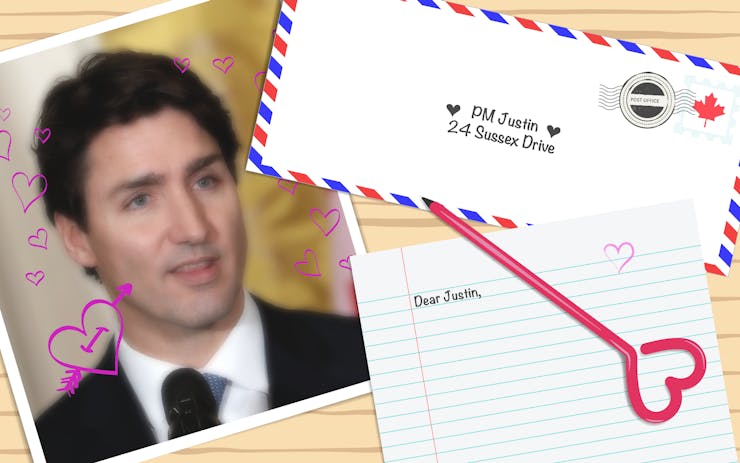To the Right Honourable Justin Trudeau, Prime Minister of Canada:
It feels like just yesterday you were campaigning with the promise to, “legalize, regulate, and restrict access to marijuana,” if elected Prime Minister. And now, here we are! Elected you were, and that promise you are keeping. But before your proposed cannabis laws are dragged back and forth across the Commons floor, Justin, I want you to know I’ve been thinking about what you said during the campaign.
You were right. Our current system of prohibition isn’t working and it is time for a change. Forgive me for being so forward, but have you considered loosening up on the heavy-handed, “legalize, regulate, and restrict,” language? This just doesn’t sound like you. I believe you can (and want) do better than just effectively controlling and restricting cannabis. And I believe you can do that by legalizing in the spirit of the modern values now synonymous with your office.
Yes, legalizing a controlled substance is a big responsibility. But it’s small PEI potatoes compared to the tremendous opportunity before you. You now have the power to use the cannabis industry to make a better Canada, one that truly elevates the earning potential of poorer Canadians, boosts our economy, and strives toward meaningful reconciliation with Indigenous Peoples. All this begins with creating a climate of informed and responsible acceptance of cannabis and those who use it, and backing off of disproportionately high prison terms.
It’s true that some Canadians fear legalization will onset a kind of Reefer Madness effect, wherein young people are perpetually high and good citizens pass en masse through the gateway from cannabis to hard drugs. But real-talk: that’s fake news. The data is in and most Canadians are either neutral or just plain happy about legalization. And the implementation of new laws must reflect these attitudes. As for the hard-drug-hysteria crowd, even they must admit that while they’re fussing over marijuana hypotheticals, the opioid crisis is here, creating all sorts of deadly problems without any help from marijuana, illegal or otherwise. What a revelation it would be to hear you say that out loud.
You’ve taken a big focus on protecting youth in the proposed bill. This is smart, because marijuana, like alcohol, may have a negative impact on the developing brain. Now, my cheekier side wants to remind you that we adults know it’s against the law (and a bad idea) to give alcohol to minors. That’s why most of us don’t do it. I expect we will apply the same restraint when it comes to marijuana and would do so even without the threat of the proposed maximum 14-year prison term for such an offence.
14 years? Really?
There’s no other way to say it, Mr. Prime Minister: this is a different kind of reefer madness. Simply put, these penalties are disproportionate to similar offences making them seem not only hysterical but also uninformed. We both know you’re going to be hearing this a lot over the next year, but for the similar crime of giving alcohol to minors, penalties include a fine and a possible jail term of up to one year. Moreover, and I mean no disrespect, are you also aware that the maximum sentence for receiving a financial or material benefit for the purpose of committing or facilitating trafficking in child victims is also 14 years? Even if your government’s proposed maximum sentences are a PR move to show disbelieving Canadians you take legalization seriously, they fall far out of step with balanced crime and punishment.
We are a vast land with a relatively small population. An yet, the world is looking at us, shoulders shrugged, palms turned up, and eyes wide asking, “How can we be more like Canada?” As Rolling Stone (congrats on the cover, by the way) elegantly pointed out, you are governing with a forward-thinking mind and drawing from contemporary values that position you and Canada as global leaders. So please Justin, hold the world’s worried gaze and consider taking the sunnier path to legalisation.
I know it’s early in our correspondence and there is much to discuss, but the conversation must begin with a clear vision of who we want to be as country come July 1, 2018.
Until next time, may the force by with you.






